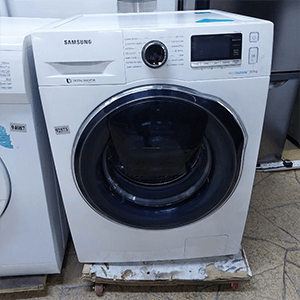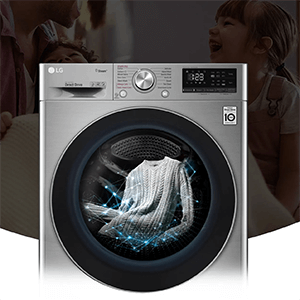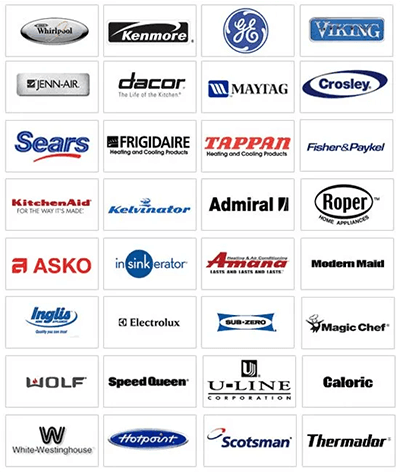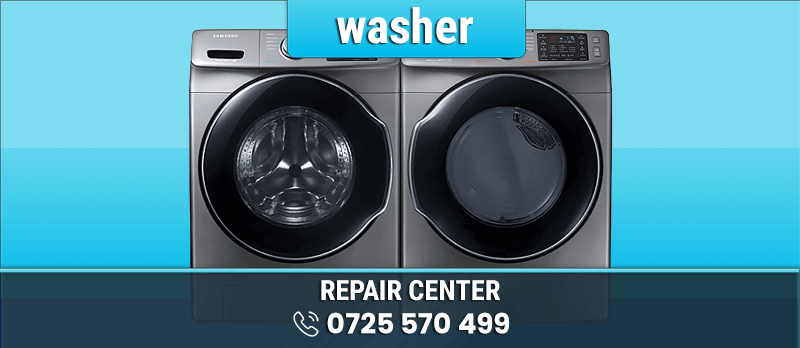
Nairobi's Reliable Washing Machine Repair Services provider, fixing washers for home users all over Nairobi County
Home Fixit is a reputable service provider in Nairobi that specializes in repairing and maintaining washing machines. With years of experience and a team of skilled technicians, we are committed to delivering efficient and reliable solutions to ensure your washing machine is up and running smoothly.
1. Professional Washing Machine Technicians:
At Home Fixit we understand the importance of having a fully functioning washing machine in your home or business. Our team consists of highly trained and experienced technicians who have extensive knowledge of various washing machine brands and models. They are equipped with the latest tools and diagnostic equipment to identify and resolve any issues your washing machine may be experiencing.

Comprehensive Washer Repair in Nairobi, Kenya:
We offer a wide range of repair services to address any problem you may encounter with your washing machine. Whether it's a minor glitch or a major breakdown, our technicians can handle it all. Some of the common washing machine issues we deal with include:
- Drum not spinning or agitating properly.
- Leaking water or detergent.
- Strange noises during the washing cycle.
- Failure to start or power on.
- Error codes displayed on the control panel.
- Inadequate water supply or drainage problems.
- Electrical or wiring issues.
No matter the problem, our technicians will diagnose the root cause and provide an effective solution to get your washing machine back in working order.
Quality Washing Machine Spare Parts in Nairobi:
To ensure the longevity and reliability of the repairs, we use only genuine and high-quality spare parts sourced directly from manufacturers. We understand the importance of using authentic components that are compatible with your specific washing machine model. By doing so, we aim to provide a long-lasting repair solution that minimizes the risk of recurring problems.
2. Prompt and Efficient Service:
At Home Fixit we value your time and understand the inconvenience caused by a malfunctioning washing machine. Therefore, we strive to provide prompt and efficient services to minimize downtime. Once you contact us for repair services, our team will schedule a convenient appointment and arrive at your location on time. They will work diligently to diagnose the problem and carry out the necessary repairs swiftly.
3. Affordable and Transparent Pricing:
We believe in providing fair and transparent pricing for our repair services. Our technicians will assess the problem and provide you with a detailed quote, including the cost of any required spare parts and labor. We aim to offer competitive prices without compromising on the quality of our work.
4. Customer Satisfaction:
At Home Fixit customer satisfaction is our top priority. We pride ourselves on delivering exceptional service and building long-term relationships with our clients. Our friendly and knowledgeable staff are always ready to answer your questions and address any concerns you may have.
Get Washer repair services by professionals today in Nairobi Area
Get Washer repair services by professionals today in Nairobi Area
If you're facing any issues with your washing machine in Nairobi, Home Fixit is here to help. With our skilled technicians, comprehensive repair services, quality spare parts, and efficient customer service, we strive to provide the best solutions for your washing machine repair needs. Contact us today to schedule an appointment and get your washing machine back to its optimal performance.
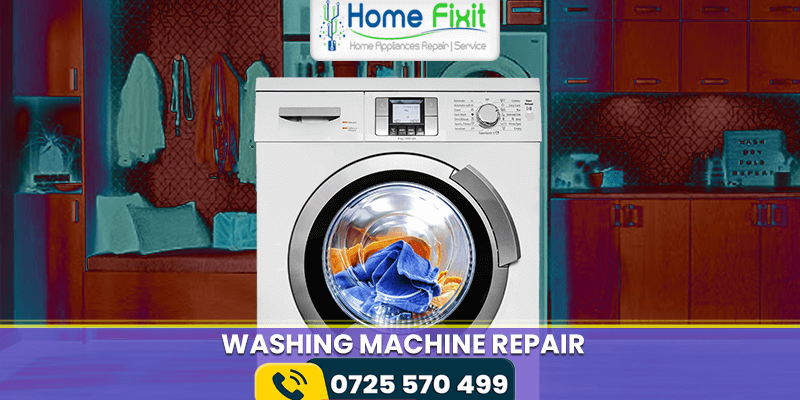
Common Washing machine Problems
Common washing machine problems can vary depending on the specific make and model of the machine. However, some of the most common issues that people encounter with washing machines include:
- Failure to Spin or Agitate: This problem can occur due to a malfunctioning motor, worn-out belts, or a faulty lid switch.
- Water Leakage: Leaks can occur from various parts of the washing machine, such as the hoses, pump, or tub. It may be caused by loose connections, damaged seals, or worn-out components.
- Excessive Noise: Unusual noises during the washing cycle, such as banging, grinding, or squeaking, can indicate problems with the motor, bearings, or belts.
- Failure to Start or Power On: If the washing machine doesn't start or doesn't respond when you press the power button, it could be due to issues with the control board, door latch, or power supply.
- Inadequate Water Supply or Drainage Problems: Problems with water supply valves, clogged filters, or drain pump issues can lead to insufficient water intake or improper drainage during the wash cycle.
- Excessive Vibration: Excessive shaking or vibration during the spin cycle can occur due to an unbalanced load, uneven flooring, or problems with the leveling legs.
- Foul Odors: Lingering odors in the washing machine can be caused by the accumulation of dirt, detergent residue, or mold and mildew growth inside the drum or rubber gasket.
- Error Codes: Modern washing machines often display error codes to indicate specific problems. These codes can range from issues with water levels, temperature sensors, or other components.
- Electrical or Wiring Issues: Problems with the electrical connections, faulty wiring, or damaged power cords can cause the washing machine to malfunction or fail to operate.
It's important to note that some problems can be easily fixed with basic troubleshooting, while others may require professional repair services. If you encounter any persistent or complex issues with your washing machine, it's recommended to consult a qualified technician for diagnosis and repair.
Washing Machine Spare Parts in Nairobi
Washing machines consist of various parts that work together to facilitate the washing and spinning of clothes. Here are some common parts found in most washing machines:
- Drum: Also known as the tub, the drum is the central compartment where you load your clothes. It rotates during the wash and spin cycles to agitate and rinse the clothes.
- Agitator or Pulsator: This part is found in top-loading washing machines and helps to create the agitation required to clean the clothes. It moves back and forth or pulsates to agitate the water and clothes.
- Motor: The motor is responsible for powering the drum's rotation and the various functions of the washing machine, such as agitating, spinning, and draining.
- Belt: The belt connects the motor to the drum and enables the transfer of power. It is essential for the rotation of the drum during the wash and spin cycles.
- Pump: The pump is responsible for draining the water from the washing machine. It removes the dirty water during the rinse and spin cycles and helps to maintain the proper water levels.
- Water Inlet Valve: This valve controls the flow of water into the washing machine. It is connected to the water supply and opens and closes to regulate the water intake during different cycles.
- Drain Hose: The drain hose carries the used water from the washing machine and directs it towards the drainage system. It is usually located at the back of the machine.
- Control Panel: The control panel is the interface through which you can select different wash programs, adjust settings, and start or stop the washing machine. It includes buttons, dials, and digital displays.
- Door or Lid Lock: This safety feature ensures that the door or lid of the washing machine remains securely closed during operation. It prevents accidents and interruptions to the wash cycle.
- Detergent Dispenser: The detergent dispenser is a compartment where you can add detergent, fabric softener, or bleach. It releases these cleaning agents at the appropriate times during the wash cycle.
- Suspension Springs or Shock Absorbers: These components help to stabilize the drum and reduce vibrations during the spin cycle. They absorb shocks and prevent excessive movement of the washing machine.
- Electronic Control Board: The electronic control board is the brain of the washing machine. It controls and coordinates the various functions and cycles based on the user's selections.
These are just some of the key parts found in washing machines. Different models and brands may have additional components or variations in their design. In case of any issues, it's important to consult the washing machine's manual or seek professional assistance for repairs or replacement of these parts.
|
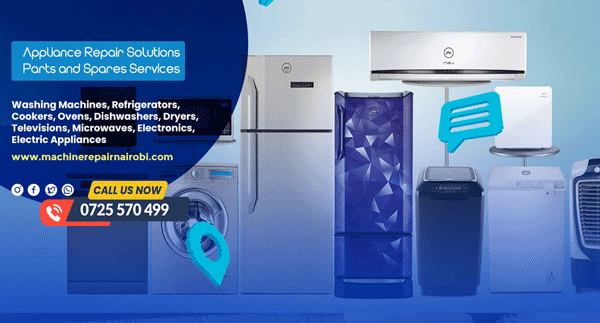
Washing Machine Fault Diagnosis in Nairobi
In Nairobi, if you are experiencing problems with your washing machine, there are several steps you can take to diagnose the fault before seeking professional repair services. Here is a general guide for washing machine fault diagnosis:
- No Power or Failure to Start:
- Check if the washing machine is properly plugged into the power outlet.
- Ensure that the power cord is in good condition and not damaged.
- Test the power outlet by plugging in another device to see if it works.
- Check if there is a tripped circuit breaker or blown fuse in the electrical panel.
- If none of the above resolves the issue, there may be a problem with the control board or the door/lid switch, and professional assistance may be needed.
- Water Supply Issues:
- Verify that the water faucets supplying the washing machine are fully open.
- Check the water inlet hoses for any kinks, blockages, or leaks.
- Remove and clean the inlet screens or filters to ensure proper water flow.
- If the water supply issue persists, there might be a problem with the water inlet valve, and professional help should be sought.
- Drum Not Spinning or Agitating:
- Ensure that the washing machine is not overloaded with clothes.
- Check if the belt connecting the motor and drum is intact and not broken or loose.
- Inspect the agitator or pulsator (in top-loading machines) for any obstructions or damage.
- If the problem continues, it could be due to a faulty motor, motor control board, or other internal components, and professional repair may be necessary.
- Water Leakage:
- Examine the hoses, connections, and water inlet valve for any signs of leaks.
- Check the door/lid seal or gasket for wear and tear or improper alignment.
- Ensure that the drain hose is securely connected and not damaged.
- If you notice leaks, it's recommended to seek professional assistance to identify and fix the source of the leakage.
- Unusual Noises or Vibrations:
- Make sure the washing machine is level and stable on the floor.
- Check for any foreign objects or debris that may have gotten trapped in the drum or pump.
- Inspect the suspension springs or shock absorbers for damage or wear.
- If the noise or vibration persists, it could indicate issues with bearings, motor mounts, or other internal components that require professional attention.
Remember, this is a general guide, and specific washing machine models may have unique diagnostic procedures. If you are unable to diagnose or resolve the issue on your own, it is advisable to contact a reputable washing machine repair service in Nairobi for professional assistance. They have the expertise and tools to accurately diagnose and repair faults in washing machines.
Washing Machine Installation in Nairobi
When it comes to installing a washing machine in Nairobi, you can follow these steps to ensure a proper and safe installation:
- Choose a Location: Select a suitable location in your home for the washing machine installation. Ensure that the area has a sturdy and level floor to prevent vibrations and movement during operation. Also, make sure the location has access to necessary utilities such as water supply and drainage.
- Gather Required Tools and Materials: Before starting the installation, gather the necessary tools and materials, including a water supply hose, a drain hose, a power cord, a wrench or pliers, and a level.
- Prepare the Water Supply:
- Connect the water supply hose to the water inlet valve at the back of the washing machine.
- Ensure the water supply valve is turned off.
- Connect the other end of the hose to the water supply faucet or tap. Use a wrench or pliers to tighten the connections securely.
- Connect the Drainage:
- Attach the drain hose to the drain outlet at the back of the washing machine.
- Position the other end of the hose into a suitable drain or a dedicated standpipe. Ensure a secure connection to prevent leaks or dislodgement.
- Plug in the Power:
- Connect the power cord to the appropriate power outlet. Make sure the voltage matches the washing machine's requirements.
- Ensure the power cord is in good condition and not damaged.
- Level the Washing Machine:
- Use a level to check the machine's balance and adjust the leveling legs accordingly. This will help prevent excessive vibrations during operation.
- Test the Installation:
- Turn on the water supply valves and check for any leaks around the water connections.
- Plug in the washing machine and ensure it powers on.
- Run a test cycle to check that the machine operates properly, fills with water, drains, and spins without issues.
- Read the User Manual: Familiarize yourself with the washing machine's user manual for specific instructions, maintenance guidelines, and safety precautions.
If you are uncertain about any step or encounter difficulties during the installation process, it is recommended to consult the washing machine's user manual or seek professional assistance from an appliance installation service in Nairobi. They have the expertise to ensure a safe and accurate installation of your washing machine.
We repair all brands of Washing Machines
Certainly, here is a list of common washing machine brands along with brief descriptions for each:
-
Samsung:
- Samsung washing machines are known for their innovative technology and sleek designs. They often offer features like eco-friendly wash cycles, smartphone integration, and advanced fabric care.
-
LG:
- LG washing machines are appreciated for their durability and energy efficiency. They often incorporate features like steam cleaning, smart diagnostics, and large capacities to accommodate diverse laundry needs.
-
Whirlpool:
- Whirlpool washing machines are recognized for their reliability and straightforward functionality. They come in a range of styles and sizes, offering features like high spin speeds and intuitive controls.
-
GE Appliances:
- GE washing machines offer a blend of modern technology and traditional designs. They provide various wash options and load capacities to suit different households.
-
Maytag:
- Maytag washing machines are known for their robust construction and dependable performance. They often feature powerful motors and sturdy agitators, making them suitable for heavy-duty laundry tasks.
-
Bosch:
- Bosch washing machines are celebrated for their engineering precision and energy efficiency. They often include advanced water-saving technology, quiet operation, and sleek European designs.
-
AEG:
- AEG washing machines combine technology and design for effective and gentle laundry care. They frequently feature customizable cycles, quiet operation, and thoughtful features like built-in steam cleaning.
-
Kenmore:
- Kenmore washing machines are commonly associated with reliability and value. Available in various sizes and styles, they offer basic to advanced features to cater to different budgets.
-
Haier:
- Haier washing machines focus on compact and space-saving designs. They often incorporate innovative features such as dual-drum systems for simultaneous washing of different loads.
-
Electrolux:
- Electrolux washing machines prioritize fabric care and efficiency. They offer features like adaptive detergent dispensing, steam cycles, and interfaces that guide users through the washing process.
-
Miele:
- Miele washing machines are renowned for their precision engineering and premium build quality. They often feature long lifespans, thorough cleaning, and user-friendly interfaces.
-
Panasonic:
- Panasonic washing machines emphasize smart technology and efficiency. They frequently offer features like automatic detergent dispensing, smartphone control, and energy-saving modes.
These descriptions provide a general overview of the brands' key characteristics, but keep in mind that specific models and features can vary widely within each brand. When considering a washing machine purchase, it's recommended to research the latest models, read reviews, and compare features to find the appliance that best suits your needs.
Opening up and repairing a washing machine can be a cost-effective and rewarding DIY project, but it's important to approach it with caution and a clear plan. Here's a step-by-step guide to help you through the process:
Tools and Materials:
Before you start, gather the necessary tools and materials:
-
Safety Gear: Wear safety goggles and gloves to protect your eyes and hands.
-
Screwdrivers: You'll need both a Phillips-head and a flat-head screwdriver.
-
Pliers: For removing wire connectors and clamps.
-
Wrench: To remove bolts and nuts.
-
Multimeter: To test electrical components for continuity and voltage.
-
Replacement Parts: If you suspect a specific part is faulty, like a pump, motor, or control board, have the replacement parts on hand.
Steps to Open and Repair a Washing Machine:
-
Safety First: Unplug the washing machine from the power source and disconnect the water supply.
-
Accessing the Inner Components:
a. Remove the top panel: This is usually secured with screws at the back. Once removed, you'll have access to the control panel and other components.
b. Remove the front panel: It's often held in place with screws or clips at the bottom. Once the front panel is off, you can see the drum, motor, and various other components.
-
Identify the Problem:
a. Inspect the interior for loose wires, disconnected hoses, or visible damage.
b. Use your multimeter to test for continuity in electrical components, such as the motor or heating element.
c. Check for clogs in hoses, filters, or the drain pump if the machine isn't draining properly.
-
Removing Faulty Parts:
a. If you've identified a faulty component, such as a broken belt, worn-out motor, or malfunctioning control board, carefully disconnect the wires, hoses, and mounting bolts.
b. Note the order and placement of each part you remove, as this will be crucial during reassembly.
-
Replacing Parts:
a. Install the new part following the reverse order of removal.
b. Ensure all connections are secure and wires are properly reconnected.
-
Reassembling the Machine:
a. Reattach the front and top panels and secure them with screws or clips.
-
Testing the Machine:
a. Plug the machine back in and reconnect the water supply.
b. Run a test cycle to ensure the issue has been resolved. Pay attention to any unusual noises, leaks, or error codes.
-
Final Checks:
a. If the washing machine is working correctly, you're done!
b. If the problem persists, consult the machine's manual, online forums, or consider seeking professional help.
-
Maintenance and Cleaning:
a. As part of the repair process, clean any accumulated dirt, lint, and debris inside the machine, including the pump filter and hoses.
-
Safety Precautions:
a. Always exercise caution when working with electrical components.
b. If you're uncomfortable or unsure about any step, consult the user manual or seek the help of a professional technician.

In many cases, opening up and repairing a washing machine can be a cost-effective way to extend its lifespan. However, for complex issues or under warranty appliances, it's best to consult a qualified technician to avoid any potential safety risks or voiding the warranty.
 , Washing Machine repair in Nairobi, Fridge repair in Nairobi, Oven repair in Nairobi, Dishwasher repair in Nairobi, Cooker repair in Nairobi
, Washing Machine repair in Nairobi, Fridge repair in Nairobi, Oven repair in Nairobi, Dishwasher repair in Nairobi, Cooker repair in Nairobi 
